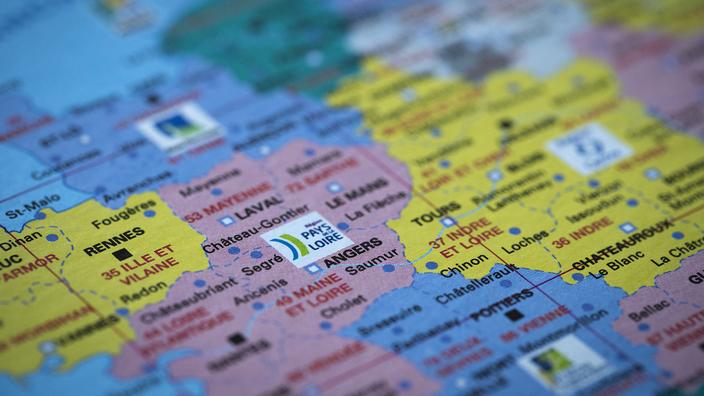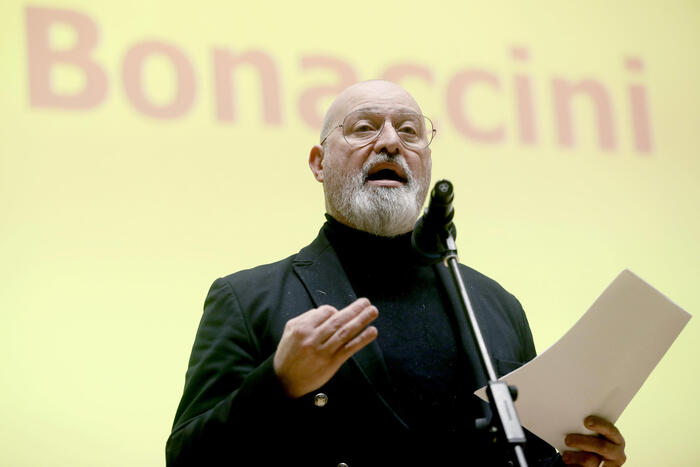Diane Delaurens is a political analyst.
The recent record of abstention from regional and departmental elections once again raises the question of the merits and maintenance of decentralization. Established in 1982 to revitalize local democracy, we can judge the objective missed when more than 66% of voters decide not to go to the polls. The “territorial millefeuille” is of such complexity that for forty years, texts on decentralization have followed one another without interruption: 1982, 1983, 1988, 1999, 2002, 2003, 2004, 2010, 2014, 2015, 2019 and the project of law "4D" (formerly "3D") for "
decentralization, differentiation, deconcentration and decomplexification
»Presented to the Council of Ministers last May.
This means that the subject is apparently never closed: a new act is always needed to "clarify", "strengthen", "rationalize", "complete" decentralization.
At the same time, local authorities seem to be shunned by voters, and the feeling of abandonment of part of the population, highlighted by the movement of yellow vests, continues to grow.
What should be done with decentralization today?
The objectives of decentralization
Decentralization officially pursued three objectives: revitalizing local democracy, making public action more effective by bringing decision-making closer to citizens (note that this can very well be done through deconcentration) in order to modernize the country, and save public funds. With regard to local democracy, the results are mixed: if the mayor is well identified, the low rate of participation in departmental and regional (around 50% to less than 40% in the last elections) and the low level of knowledge by the citizens of their elected representatives question the reality of a democratic dynamic on the ground [1]. For the modernization of the country, the local authorities provide the vast majority of public investment expenditure and decentralization has been put forward as theone of the reasons for the success of equipping the territories [2], coupled with the engineering capacities of the State and then of the private sector.
The territorial organization of France suffers from paradoxical injunctions: it would be a question of being as close as possible to the citizens but also of favoring the regroupings of communes and the large regions.
Diane delaurens
However, decentralization was not accompanied by the hoped-for financial rationalization: between 1988 and 2013, as the Court of Auditors underlines, the expenditure of local authorities increased well beyond what was suggested by transfers of funds. skills [3]. In addition to this assessment - an exercise, let us remember, always delicate due to the lack of counterfactuals - the growing territorial inequalities between city centers, suburbs and rural areas now question the role of decentralization in regional planning. , largely decentralized competence. In fact, the territorial organization of France suffers from paradoxical injunctions: it would be a question ofto be as close as possible to citizens but also to promote the regrouping of municipalities and large regions; savings should be made while creating new decision-making levels such as inter-municipal authorities; it is necessary to clarify the rules but at the same time the differentiation and the particular statutes such as that of the future European collectivity of Alsace constantly reshuffle the cards. In this context, what can we expect from decentralization today? A simple answer: to serve citizens in the best possible way. In our opinion, this involves revalorizing the role of the State, the logic of specialization of the levels and the reinvention of the relations between them.it is necessary to clarify the rules but at the same time the differentiation and the particular statutes such as that of the future European collectivity of Alsace constantly reshuffle the cards. In this context, what can we expect from decentralization today? A simple answer: to serve citizens in the best possible way. In our opinion, this involves revalorizing the role of the State, the logic of specialization of the levels and the reinvention of the relations between them.it is necessary to clarify the rules but at the same time the differentiation and the particular statutes such as that of the future European collectivity of Alsace constantly reshuffle the cards. In this context, what can we expect from decentralization today? A simple answer: to serve citizens in the best possible way. In our opinion, this involves revalorizing the role of the State, the logic of specialization of the levels and the reinvention of the relations between them.In our opinion, this involves revalorizing the role of the State, the logic of specialization of the levels and the reinvention of the relations between them.In our opinion, this involves revalorizing the role of the State, the logic of specialization of the levels and the reinvention of the relations between them.
The
É
tat central player in the coming decades
The Covid-19 crisis has shown it: the State is the level of response to a crisis. The capacity for action throughout the territory, coordination with neighboring countries and the representation of the general interest make it a key player in the Republic, even decentralized. However, the twenty-first century promises to be a century of global crises: pandemic linked to mistreated biodiversity, global warming due to greenhouse gas emissions, displacement of affected populations. It is therefore necessary to recentralize certain competences which must today be considered from a national angle, foremost among which is urban planning. The proposals of the citizens' convention for the climate confirm the need for an overall vision to lead a coherent policy ofland use planning, in terms of land use, location and construction method [4]. The creation in 2020 of a High Commission for Planning revives this conception of a strategic State which considers the entire national territory from a long-term perspective. This requires strengthening the State's skills, particularly in engineering, an area in which communities are too small to maintain full expertise. It is also about these same skills which, after having made modern France, were unfortunately left to the private sector.a strategic state which considers the entire national territory from a long-term perspective. This requires strengthening the State's skills, particularly in engineering, an area in which communities are too small to maintain full expertise. It is also about these same skills which, after having made modern France, were unfortunately left to the private sector.a strategic state which considers the entire national territory from a long-term perspective. This requires strengthening the State's skills, particularly in engineering, an area in which communities are too small to maintain full expertise. It is also about these same skills which, after having made modern France, were unfortunately left to the private sector.
The risks in terms of territorial equality and legal insecurity that the territorial differentiation suggests, with rules changing from one territory to another, should not be overlooked.
Diane delaurens
The State must thus be recognized as the first territorial collectivity in France, the only one to benefit from a vision of the territory broader than the limits of a municipality, a department or a region, and of a long-term perspective. The State as guarantor of equality is therefore the one who can overcome local interests to reduce territorial differences: it is the role of vertical equalization (transfers from the State to the communities) which represents in 2017 more than 70% of the overall territorial equalization. Centralizing land use planning is also a key to fighting against territorial inequalities. After a period when the skills of local authorities followed demographic movements,contributing to the strengthening of metropolises and to inequalities with the rest of the territory, an “initiator” development of the country thanks to the plan could make it possible to direct the flow of population and no longer just to adapt to it. The Prime Minister's circular dated June 5, 2019, for example, launched the reflection to move certain directions for the purposes of territorial revitalization, and the 4D bill also plans to strengthen deconcentration. Conversely, the risks in terms of territorial equality and legal insecurity that the territorial differentiation suggests, with rules changing from one territory to another, should not be overlooked. Both to respond to the feeling of abandonment of certain territories and to prepare for the future, the State is therefore thekey player in French territorial organization and deconcentration seems to be the most appropriate instrument.
Refocus communities on services provided to citizens
The strength of communities lies in their direct relationship with citizens: a decision-maker theoretically identified by the voters and made responsible during the ballot. This is especially true at the municipal level, where the mayor is known to all, and takes decisions having direct consequences on the lives of his fellow citizens in matters of water purification or the management of primary schools. As such, and to respond to the feeling of abandonment of many territories, it seems necessary to invest the level of municipalities, whose mayors are resigning today en masse in the face of the burden of the task. This is the whole purpose of the “mayor - prefect” couple that the Prime Minister, former mayor of Prades (Pyrénées-Orientales) wishes to keep. Considerations, often economic,The size of the municipalities and their grouping into intermunicipal bodies should invite a rethinking of the objective of decentralization in the 21st century: strengthening the municipal level to maintain the link with the territory, while specializing skills for the proper use of public funds.
Specializing the action of communities would restore a more certain legal framework: the State could not decentralize more (of expenditure) than expected.
Diane delaurens
Specializing the action of communities would restore a more certain legal framework: the State could not decentralize more (of expenditure) than expected.
It was the idea of the "
skills block
Of Act I, and it is on this that we must base decentralization in the 21st century: public services identified at each level, such as waste management for the municipal block. After several legislative back-and-forths in the 2010s, the NOTRe law in 2015 removed the general jurisdiction clause for departments and regions: they can only exercise their regulatory power in their clearly listed areas of jurisdiction. This logic of specializing responsibilities must be pursued by identifying the key local skills at each level for the decades to come. It is simply a question of applying the spirit of the constitutional principle of subsidiarity: that competence be given to the level most able to implement it.This clarification by content will make it possible to explain to citizens the reasons for such or such attribution of competence to such community, thus establishing the crossed responsibilities of each. If the general code of local authorities is too imposing today, it is time to return to simple and clear rules, based on a prospective analysis to identify the key competences which really present an advantage to be decentralized. Conversely, the demand for ever wider attributions, including regulatory power to apply the laws [5] (vested in the Prime Minister by the Constitution), poses a risk to the legibility of responsibilities, the equality of territories and legal certainty allowed by a national application. The questioning ofequality of citizens before the law, consequently threatening the unity of the Republic, thus questions the validity of these proposals.
Rethinking the relationships between the different levels
Take an example from decentralization today.
It is the inter-municipal authorities which have legal competence to develop the reception areas for Travelers;
however, it is the prefects and the presidents of the departmental council who must, still according to the law, sign the "
departmental plan for the reception of travelers.
". This indicates the efforts to be made by the municipalities of the department in terms of type, reception capacity and location of land, as well as state support. Result: the departmental coordination is not accompanied by a financial contribution, and the obligation to develop the areas indicated by the departmental level is felt by the municipalities as a violation of their autonomy. This entanglement of competences, between levels of communities which officially have no supervisory power over each other, is symptomatic of the difficulties of attributing decision-making and financial autonomy to each level while maintaining national consistency. The relationships between the different levels must be rethought in an innovative way.
The services of the departments and regions could be pooled with the decentralized services of the State to increase their strike force for the benefit of citizens.
In this new configuration, the prefect could once again become the executive of the elected assembly.
Diane delaurens
A first option would be to recognize at the higher level a power to order at the subordinate levels, to satisfy the need for co-ordination and to prevent civil servants from various communities working in opposite directions. Consultation, if it allows everyone to express themselves, is also not very economical in terms of time and money, slows down decision-making and scrambles the chain of decision-making and responsibility. The elimination of non-supervision between local authorities, for the purposes of establishing a real chain of responsibility, would help to clarify the roles of each in the event of shared competence (coordination or project management). A second option would be to consider that the services of the departments and regions could be pooled with the decentralized services of theState to increase their strike force for the benefit of citizens. In this new configuration, the prefect could once again become the executive of the elected assembly [6], and the departmental and regional levels of hybrid communities. Control
a priori
acts is not a step backwards but on the contrary takes place in the spirit of the prefectural rescript instituted by the recent law "
engagement and proximity
», Aimed at better coordination of services and greater legal stability. Concretely, a mayor uncertain of the interpretation of legal standards for example (it is that given in the documentation of the law engagement and proximity) with regard to the construction of a crèche, could call on the services of the State. to clarify what is legal and what is not. The prefect's interpretation binds him for the future control of legality: he will not be able to refer to the administrative court a legal decision that he had held as valid in his rescript. This involvement of the State would not be in contradiction with the participation of the citizens because the assemblies would remain elected and the knowledge of the local territory of the services maintained. On the contrary, theidentification of the decision-making chain, instead of today's crossed responsibilities, would clarify the electoral issues. Finally, a more radical option would consist in suppressing the territorial collectivities that are the region and the department, while keeping the State services acting in the competences devolved to this level of deconcentration.
To counter the current complexity and weakness of decentralization, France's territorial organization must return to its founding principle: effective public action for the benefit of the whole country. Thinking of the State as a key player in decentralization may seem paradoxical, but such a conception actually corresponds to its claimed objectives: more efficiency and impartiality thanks to an overall vision while having local area, better use of public funds by clarifying competences and reorganizing services, and local democracy emphasizing the municipality as a real level of proximity.
[1] See on this subject the recent note from the Rousseau Institute: “
Decentralization and territorial organization: towards a return to the State?
"?
[2] In particular by the information report of Michel Mercier published in 2000, as well as by the report of the Economic, Social and Environmental Council published in 2013: “
The reduction of territorial inequalities: which national policy for regional planning?
"
[3] See in particular the report of the Court of Auditors relating to the State wage bill published in July 2015 and that relating to State financial assistance and the disparities in expenditure of the municipalities and their groups published in November 2016 .
[4] See on this subject the chronicle of Jean-Marc Jancovici in
Les Échos
dated February 24, 2020, “
Décarbonées elections
”
[5] Proposal announced at a press conference of associations of mayors, departments and regions of France on March 13, 2019 and repeated the following day in
L'Opinion.
[6] As was the case before 1982.









